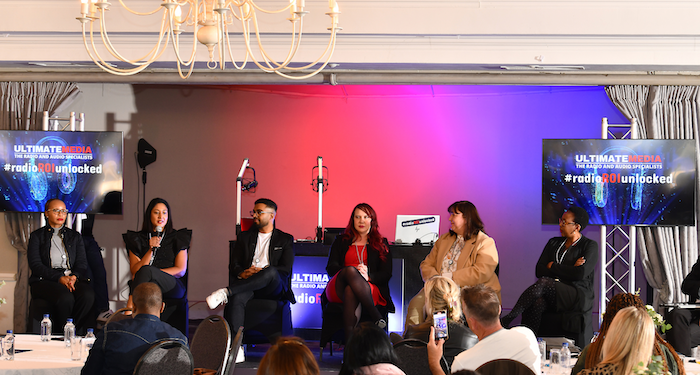Ultimate Media recently hosted an impactful workshop, the #RadioROIunlocked, drawing over 120 key players from South Africa’s radio industry.
The event was a platform for exploring how to maximise the effectiveness of radio campaigns, enhance client service, and delve into essential topics such as measurement, language, and innovation — with a significant emphasis on measurement.
The workshop followed an independent survey conducted by Ryan Till from Straight St. Consulting. This survey aimed to shed light on how clients make platform decisions and how radio fits into the increasingly crowded media landscape of 2024.
The survey involved interviews with some of the country’s largest clients and agencies, offering a comprehensive view of how budgets are allocated and how radio is perceived in the decision-making process.
Till’s findings underscored the necessity of understanding client measurement tools and media options to effectively position radio in today’s market.
Common factors
Despite varying definitions of success across different clients and agencies, the survey identified common factors that contribute to a successful radio campaign.
Ultimate Media emphasised the importance of showcasing these successes aligned with clients’ objectives. Currently, while no universal measurement tool exists, metrics like reach, impact, CPT/CPP, and return on investment are essential. It suggested adding response rates as a new measurement metric to further refine evaluation.
The event also highlighted radio’s evolving role. Traditionally viewed as a medium for reach and frequency, radio is increasingly recognised for its potential to drive engagement.
Megan Walker, head of insights and media planning at Ultimate Media, presented compelling data illustrating radio’s strength in the media mix.
Highest market reach
According to her findings, a cross-media plan with radio as the foundational buy achieves the highest market reach (23%). Nielsen’s study further revealed that exposure to radio increases brand browsing by 52%, with 58% of this occurring within 24 hours.
The workshop tackled an important question: should marketers invest in radio solely based on its audience size? Ultimate Media’s team provided insights into leveraging non-traditional radio (NTR), radio influencers, and digital audio innovations like podcasts to enhance radio’s impact.
Florence Kikine, head of media strategy at the SABC, delivered a thought-provoking presentation on the power of language, particularly vernacular.
She dispelled the misconception that the African Language Speaking (ALS) market is not technologically adept, emphasising instead that this market is deeply rooted in culture and language while maintaining a modern perspective.
Dynamic discussion
The event concluded with a dynamic panel discussion involving media agency representatives, media owners, and clients. The discussion focused on optimising radio’s potential, with trust and alignment on objectives emerging as critical factors for success.
Effective collaboration between these three groups—agencies, clients, and stations—was highlighted as crucial for achieving desired outcomes.
Ultimate Media’s role as an independent, agnostic specialist in the radio sector was showcased as a key factor in facilitating these vital industry conversations. By bringing together diverse stakeholders, Ultimate Media aims to foster meaningful connections and drive positive change within South Africa’s radio landscape.














